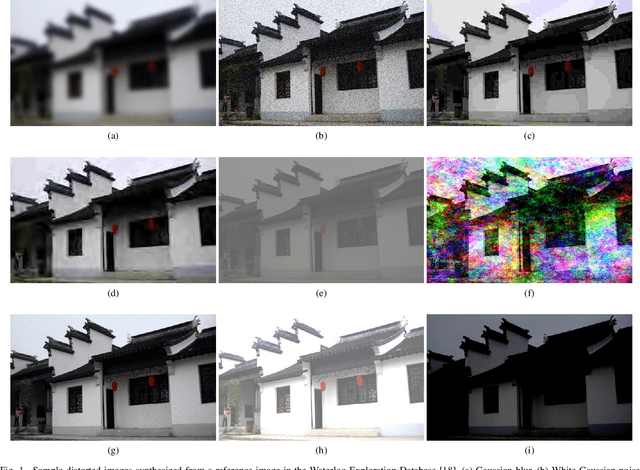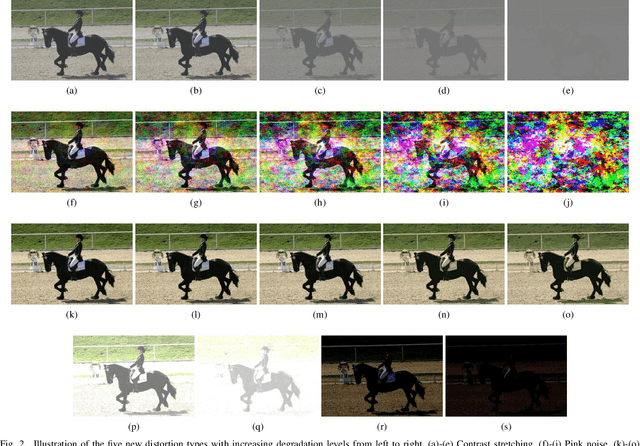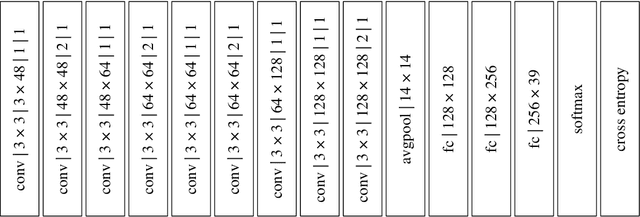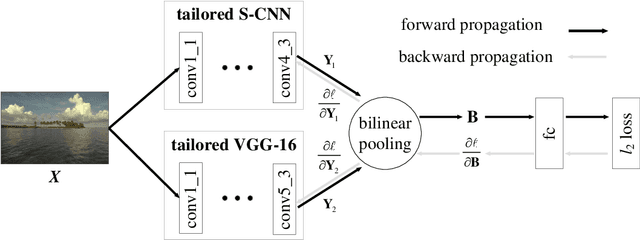Dexiang Deng
Blind Image Quality Assessment Using A Deep Bilinear Convolutional Neural Network
Jul 05, 2019



Abstract:We propose a deep bilinear model for blind image quality assessment (BIQA) that handles both synthetic and authentic distortions. Our model consists of two convolutional neural networks (CNN), each of which specializes in one distortion scenario. For synthetic distortions, we pre-train a CNN to classify image distortion type and level, where we enjoy large-scale training data. For authentic distortions, we adopt a pre-trained CNN for image classification. The features from the two CNNs are pooled bilinearly into a unified representation for final quality prediction. We then fine-tune the entire model on target subject-rated databases using a variant of stochastic gradient descent. Extensive experiments demonstrate that the proposed model achieves superior performance on both synthetic and authentic databases. Furthermore, we verify the generalizability of our method on the Waterloo Exploration Database using the group maximum differentiation competition.
 Add to Chrome
Add to Chrome Add to Firefox
Add to Firefox Add to Edge
Add to Edge